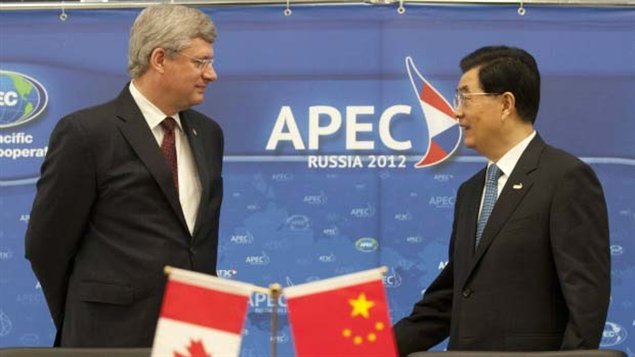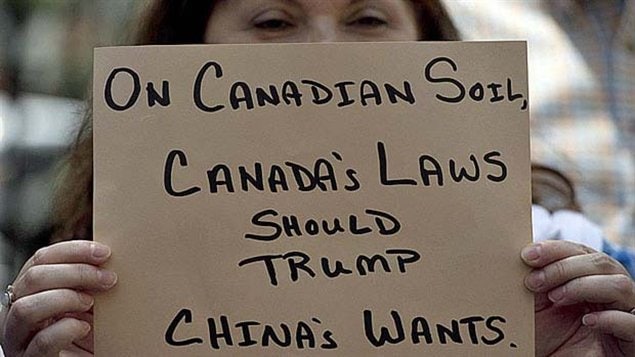The Federal Court this week rejected a request to stay the Canada-China Foreign Investment Promotion and Protection Agreement (FIPA)
In September of 2012, Canada’ Prime Minister signed the investment treaty with China.

A FIPA is not a free trade agreement but rather a bilateral agreement intended to “protect and promote” foreign investment through legally-binding rights and obligations.
Although Canada has signed some 14 FIPA’s with countries like Russia, Argentina, and the Czech Republic, and negotiations are continuing with several others, those are countries which have little current investment in Canada. China’s investment and assets here are already quite substantial and the deal has come under heavy criticism from several sources who claim it undermines Canada’s sovereignty.
Gus Van Harten, an international investment law expert and associate professor at the Osgoode Hall Law School at York University, in Toronto
He says that under this treaty, Canadian taxpayers will assume “more of the risks and more of the constraints” than their Chinese counterparts to the degree that Chinese investments in Canada vastly outpace Canadian investments there. On a number of other legal issues, he also calls into question whether the treaty is constitutional or not.
Meanwhile, ta British Columbia aboriginal group had requested a stay in the treaty, saying the federal government had a responsibility to consult with First Nations before signing such a deal.
The court haowever, said the 300-member Hupacasath band near Port Alberni in the west-coast province, had not demonstrated how the deal would harm aboriginal rights.
The court also said the band had not demonstrated a causal link between the treaty and any negative affects on the band’s self-government rights.
Brenda Sayers, a member of the Hupacasath First Nations, told CBC News earlier this month the federal government had agreed to “hold off on the ratification until due process took place in court.”
(With files from CBC)







For reasons beyond our control, and for an undetermined period of time, our comment section is now closed. However, our social networks remain open to your contributions.